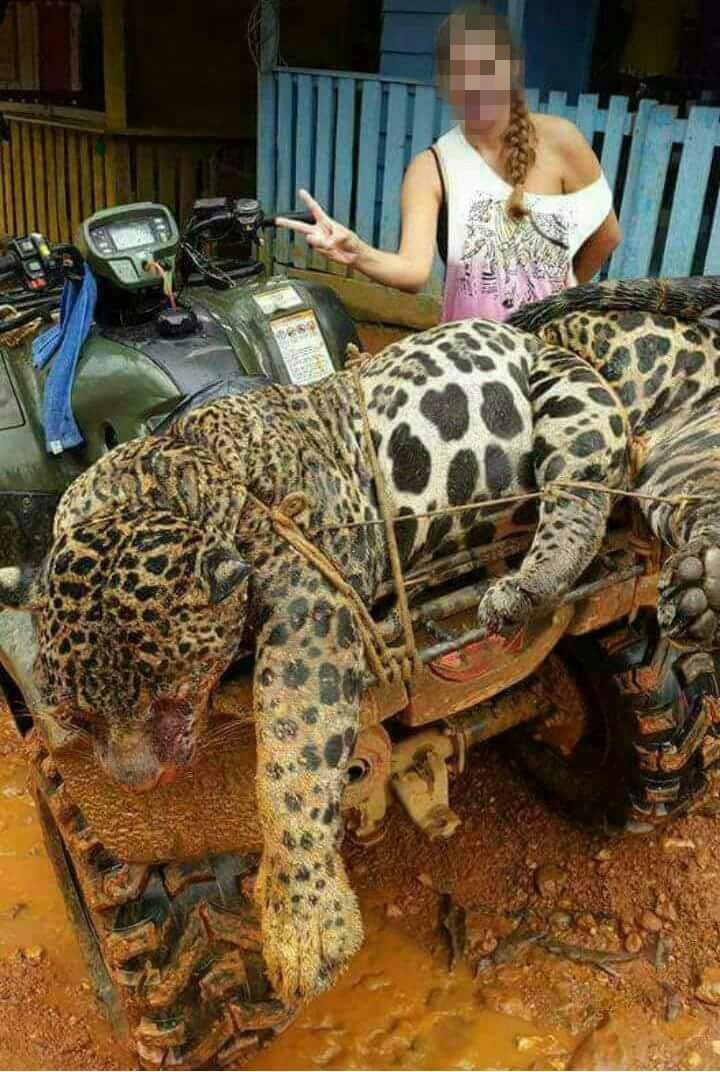Secret gangs boil down forest jaguars for lucrative market in unproven Chinese medicines
Big cat - already threatened - is being further endangered by black market in body parts, claws, teeth and bones, investigators find
Your support helps us to tell the story
From reproductive rights to climate change to Big Tech, The Independent is on the ground when the story is developing. Whether it's investigating the financials of Elon Musk's pro-Trump PAC or producing our latest documentary, 'The A Word', which shines a light on the American women fighting for reproductive rights, we know how important it is to parse out the facts from the messaging.
At such a critical moment in US history, we need reporters on the ground. Your donation allows us to keep sending journalists to speak to both sides of the story.
The Independent is trusted by Americans across the entire political spectrum. And unlike many other quality news outlets, we choose not to lock Americans out of our reporting and analysis with paywalls. We believe quality journalism should be available to everyone, paid for by those who can afford it.
Your support makes all the difference.Investigators exploring the plight of endangered jaguar have uncovered secretive networks of hunters, smugglers and organised gangs involved in multi-million-pound trafficking chains leading to China.
The big cats are being tracked down in South America for their body parts to be illegally sold for a lucrative black market in traditional Asian medicine, with a jaguar carcass considered to be worth around $260 (£200).
As the animal’s natural forest habitat is increasingly destroyed by logging and mining, it becomes more visible and ever more susceptible to being stalked and poached, pushing it nearer to extinction.

Working undercover in Suriname for 10 months, investigators for World Animal Protection unearthed evidence of cruel hunts and illegal trading chains, and saw dead jaguars strapped to a tractor and motorbikes.
One photograph showed a girl standing next to a slaughtered jaguar.
Jaguars, the largest of South America’s big cats and known for their spot-like elaborate markings, may be tracked for hours or days, as bait of dead dogs is laid for them, then shot dead. Sometimes multiple gunshots leave them seriously wounded, the investigators found.
In one case, it was reported a jaguar had to be shot seven times before it died, which activists said caused prolonged suffering.
The bodies are boiled down for up to a week until they turn into a dark glue or treacle-like paste that is sold on the thriving black market in tubs in a trade that until now has gone undocumented.
Jaguars already face the challenges of habitat destruction and human animal conflicts
Buyers, who will pay up to $3,000 for a tub, wrongly believe the paste can treat arthritis pain and improve sexual performance and health.
Smugglers move the big cats’ bodies between different hiding places to avoid detection, and move premises frequently, the investigators found.
Teeth and claws are sold as ornaments or for jewellery, and a tooth set in gold in a tourist shop was on sale for $1,200.
Some traders place orders for dead jaguar on social media, according to the witnesses, who spoke to rangers, poachers, shopkeepers selling jaguar teeth and jewellery and traders who boil the carcasses down.
The pet trade is also fuelling the animal’s demise, the investigation found. The charity discovered jaguar cubs were being taken from the wild and sold – often to wealthy businessmen who keep them as status symbols and don’t know how to care for them. The animals are fed cows’ milk or sugar water, which is unsuitable.
Sources said they are kept in cages until they grow too big to look after, when they may be killed for consumption in Suriname, which is South America’s smallest country, bordering Brazil to the south and with a northern coast on the Atlantic Ocean. Jaguar meat may be put in soup and bones are used to make wine.
The poaching, by locals eking out a living, usually happens near the country’s mining and logging sites that are mostly Chinese-owned.
Nicholas Bruschi, investigations adviser at World Animal Protection, said: “This investigation has uncovered a shocking underground trade exploiting an iconic animal of the South American rainforests in a barbaric way for unproven traditional Asian medicine.
“Jaguars already face the challenges of habitat destruction and human-animal conflicts. They are now cruelly and needlessly killed, left to die agonising deaths.
“It is extremely sad news for these incredible big cats whose numbers are already in decline.
"And, while jaguar cubs might seem very cute, they are wild animals and belong in the wild, not in the illegal pet trade.”
There are an estimated 173,000 jaguars left in the wild, and they are classed as “near-threatened” by the IUCN Red list of threatened species, which means hunting the species is illegal. Numbers have dropped by up to a quarter in two decades.
A further threat is from farmers as jaguars are also targeted for taking livestock.
Until now little has been known about jaguar poaching for traditional Asian medicine but World Animal Protection says it will work with Suriname’s rangers and charities to share intelligence to prevent poaching and pressure the country’s government to crack down on the poaching and smuggling.
“There are grave concerns that jaguar numbers will fall significantly if their body parts continue to be seen as substitutes to or supplements to tiger body parts,” the investigators’ report said.

Join our commenting forum
Join thought-provoking conversations, follow other Independent readers and see their replies
Comments